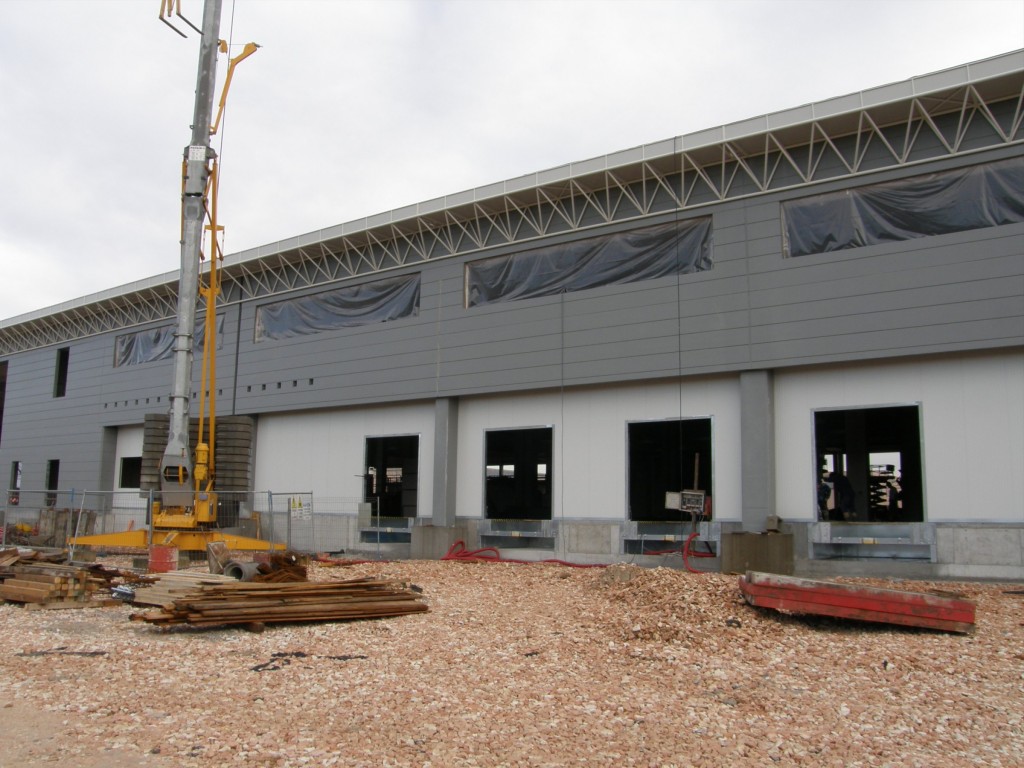FREQUENTLY ASKED QUESTIONS ABOUT INSULATED METAL PANELS
In this article, we’ll shed light on how to get the most out of the insulation advantages. Therefore, here you can find a guideline to the frequently asked questing regarding insulated metal panels.
1. INSULATED METAL PANELS APPLICATIONS
EXTERNAL CLADDINGS
Insulated sandwich panels are used for single and occasionally multi-story buildings. Certainly, polyurethane is the most common core insulation for this application. Furthermore, sandwich panels that you use externally have to withstand wind-loads and also be weather-tight.
INSULATED INTERNAL ENVELOPES AND PARTITIONS
Insulated sandwich panels are used typically in food factories, cold stores, pharmaceutical industries, other temperature-controlled envelopes, and high-tech clean rooms. Certainly, Expanded Polystyrene (EPS) is the most common core insulation for these applications.
FIRE RESISTING COMPARTMENT WALLS
You can use very successfully some sandwich panel systems in this application. Certainly, high-density Rock Wool mineral fiber we commonly use for this application as it can easily provide panels with 30 minutes and up to 240 minutes of fire resistance. Hence it is important to ensure that the panel system provides adequate insulation to ensure that combustible materials in direct contact with the unexposed panel side will not ignite. (In addition, that is the purpose of the insulation required in the fire resistance test).
Our roof and wall insulated panels are suitable for almost any type of construction, such as:
- Industrial and commercial warehouses;
- Agricultural buildings;
- Office buildings;
- Aviation hangars;
- Food factories;
- Modular housing;
- Temporary hospital units;
- Cold storages.
2. WHICH INSULANTS ARE USED IN INSULATED SANDWICH PANELS?
- Polyurethane (PUR)
- Polyisocyanurate (PIR)
- LPCB approved Polyisocyanurate (PIR+) (certainly better quality and fire performance than the standard PIR)
- Rock Wool (RW)
- Glass Wool (GW)
3. WORKING TEMPERATURES OF PUR, PIR, AND ROCKWOOL INSULATED METAL PANELS
The temperature resistance properties of an insulated sandwich panel under elevated temperatures are very important in practice. Furthermore, permanent temperature hikes can lead to dimensional changes, loss of shape and strength, thermal decomposition, etc.
Therefore, in certain applications, we suggest paying attention to these working temperature limits of the insulated metal panel.
TEMPERATURE APPLICATION LIMITS:
- PUR and PIR sandwich panels from -40°C to 80 °C (from -40°F to 176°F);
- Rock Wool sandwich panels from -20°C to 100 °C (from -4°F to 212°F).
4. WHAT IS THE PURPOSE OF THERMAL INSULATION?
5. WHAT IS R-VALUE?
R-Value is the rating system used to grade insulation products or a material’s insulating properties. The “R” stands for “resistance” and refers to the resistance a material has to heat flow or temperature conduction. The higher the R-value, the greater the insulating effectiveness. The R-value depends on the type of insulation, its thickness, and its density.

 WhatsApp Us
WhatsApp Us
Hello, I am trying to understand which panel is better at insulating. PIR, PUR Por Rockwool. I am constructing an oven about 100 square meters using panels. The maximum temperature inside will be 100 degrees. Please could you recommend one of your panels? Thanks!
Dear Ben,
thanks for writing.
Actually, that working temperature is higher than the maximum allowed for PUR/PIR sandwich panels, I suggest you go for Rockwool panels. You might want a panel that is certified at least EI 30 or go for an EI 120, the latter if you have also thermal insulation issues.
In any case, feel free to contact me again.
Alberto Adriano
your text was very good i am a student i can use your text?
Hello! Yes, you can use our text with reference to our website. Thanks! Regards
Thanks a lot for the insiteful article. I have shared
it on my social media accounts.
Nice post. Thank you for the sharing this wonderful post.
Hi, Thank you for the Be positive, interested, and encouraging sharing and post